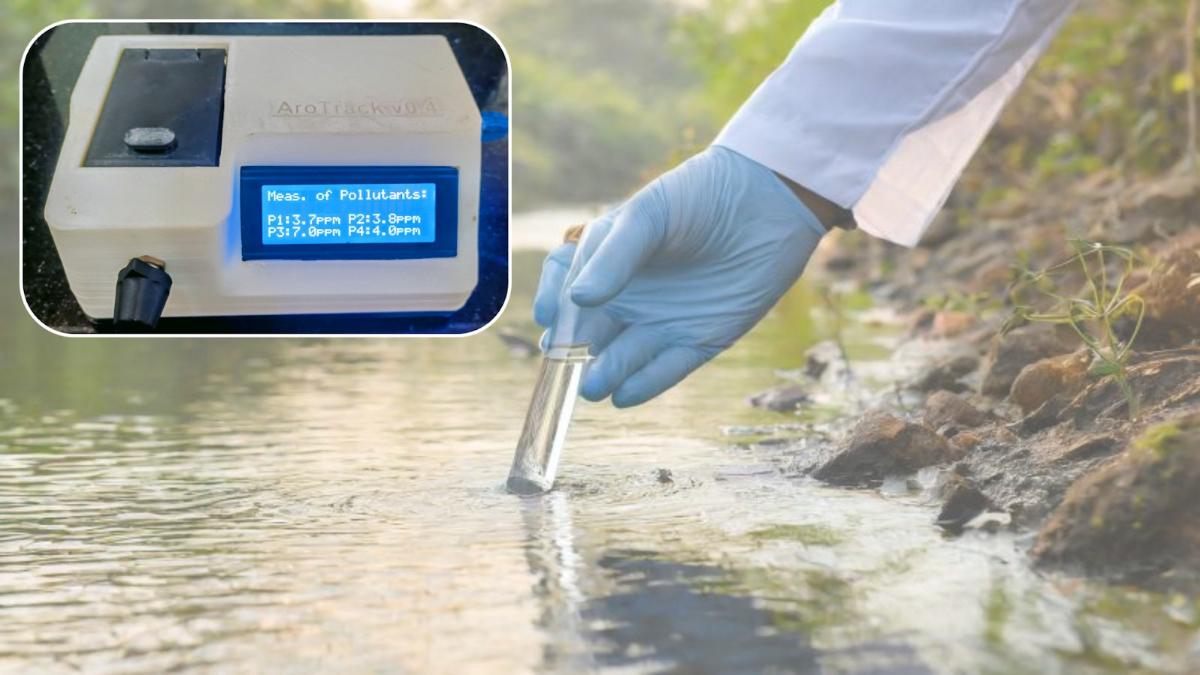IIT Bombay’s AroTrack: A compact, affordable device designed to detect harmful pollutants in water, revolutionizing water quality monitoring | File Photo
Mumbai: Researchers at the Indian Institute of Technology Bombay (IIT-B) have unveiled “AroTrack”, a compact and affordable device designed to detect harmful pollutants like phenol, benzene, and xylenols in water. With a price tag of under ₹5,000, the device promises to revolutionise water quality monitoring, particularly in rural and resource-limited areas.
The contamination of water bodies due to industrialisation, urb.sation, and unregulated effluent discharge has created significant environmental and health concerns. Toxic aromatic xenobiotics, including phenol and benzene, are often found in untreated wastewater discharged into rivers and lakes.
These compounds are challenging to detect and pose severe health risks, as seen in cases like the Lanzhou, China benzene contamination, which affected 2.4 million people, and similar incidents in Madurai.
Current methods for detecting such pollutants are expensive, complex, and require skilled personnel, making them unsuitable for widespread use. Addressing this gap, Professors Ruchi Anand from the Department of Chemistry and Rajdip Bandyopadhyaya from the Department of Chemical Engineering led a team at IIT-B to develop AroTrack, a user-friendly, low-cost biosensing device capable of detecting these pollutants accurately.
The device leverages a key biosensor module, MopR, derived from bacteria that thrive in polluted environments. This protein reacts selectively to aromatic xenobiotics, triggering a colour change in the sample solution when pollutants are present.
The reaction is measured using a light-emitting diode (LED) —phototransistor assembly within the device. Modified versions of the MopR protein enable the detection of additional pollutants, creating a versatile array of sensors.
“AroTrack was born out of the philosophy to create field-ready devices that translate laboratory innovations into practical tools for environmental monitoring,” explained Prof. Bandyopadhyaya. Prof. Anand added, “It is compact and robust, ideal for use in remote locations where traditional testing methods are unavailable.”
The device, no larger than a small projector, is portable and battery-operated, making it suitable for rural areas and harsh environmental conditions. Using in-house 3D printing and open-source electronics, the researchers kept costs low without compromising accuracy or reliability. AroTrack can detect pollutants in concentrations as low as 10 parts per billion (ppb) and operates efficiently in water temperatures up to 50°C.
Laboratory tests and trials in real-world environmental samples have shown AroTrack to be highly accurate, rivalling modern spectrophotometers. Additionally, it completes analyses within 30 minutes, significantly reducing the time and resources needed for water quality assessments.
Looking ahead, the IIT-B team plans to expand the device’s capabilities to detect complex aromatic pollutants, such as biphenyls. “We are working on broadening its pollutant-detection range while ensuring it remains user-friendly,” said Prof. Anand. While the prototype is functional, further field trials are required to ensure its robustness in diverse conditions.
With its affordability, portability, and precision, AroTrack offers a groundbreaking solution to global water pollution challenges. The device underscores the potential of low-cost, open-source technologies in addressing critical environmental issues and ensuring safer access to clean water.

